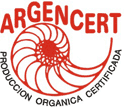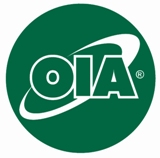BioFach 2012 - Market report: Constantly growing consumer demand for organic
- Worldwide customers bought organic for 59 billion US dollars in 2010
- USA still the biggest single market
- Germany and France the top European market players
The number of customers deciding in favour of organic products all over the world is still growing – whether for food, cosmetics or clothing. BioFach, the World Organic Trade Fair, and the parallel Vivaness, Trade Fair for Natural Personal Care and Wellness, gather the sector’s international players at the NürnbergMesse location once a year. It’s time again from 15–18 February 2012, when some 2,500 exhibitors (2011: 2,544) and 44,000 trade visitors are expected once more at the exhibition duo in the organic city Nürnberg. The special highlight is India as Country of the Year 2012.
Organic products worth 59 billion US dollars landed in the shopping baskets of customers around the globe in 2010, according to Amarjit Sahota, Managing Director of London-based corporate consultant Organic Monitor. North America is still the biggest single market ahead of Europe.The US organic sector enjoyed 8 % growth in 2010 compared with 1 % in the conventional food market (OTA, Organic Industry Survey 2011, USA). Organic sales thus reached 28.6 billion US dollars (21.6 billion EUR). In the non-food segment, food supplements lead the ranking – up 7 % to 681 million US dollars. Organic fibres (cotton and linen) achieved sales of 605 million US dollars (+ 16 %) and body care 490 million US dollars (+ 7 %).
Organic area in Europe approaching 10 million ha
“In Europe as a continent, the organic area grew strongly again in 2010 and is approaching 10 million ha: 9.7 million ha were farmed organically in 2010. This corresponds to 2 % of
the whole farming area,” says Helga Willer from the Research Institute of Organic Agriculture (FiBL), Switzerland.
The expert continues to rate the trend positively. In the EU as a political unit, almost 9 million ha or 5% of the agricultural area were farmed organically. The organic area increased by half a
million ha over 2009. European champion with the largest organic area is currently Spain with 1.5 million ha, followed by Italy (1.1 million ha), Germany (0.99 million ha) and France (0.85 million
ha). The largest absolute increases in area are in France (170,000 ha) and Spain (125,000 ha), according to Willer.
Germany: positive development in the specialist trade
Compared with the previous year, the estimated total sales of organic products in Germany in 2010 remained steady at 5.9 billion EUR and thus just under 6 billion EUR again (GfK, Nielsen, Biovista). Current figures for the first half of 2011 are cause for delight in the specialist trade, which increased sales of organic food by 8 %. This is shown by a random sample of over 10 % of organic food shops and organic supermarkets taken by German communication consultant Klaus Braun. The area of organic farming land in Germany has also grown continuously for some years with growth rates of around 5 % (2010: 4.6 %). 6 % of the total area is meanwhile farmed organically. Sector players want to continue to push organic agriculture at the political level and achieve a 20 % share of the area by 2020. 990,702 ha were farmed organically in Germany at the end of 2010, and this figure could be as high as 1 million ha in 2011.
France: dynamic growth market
France occupies second place in the European ranking of strong-selling organic markets and has considerable growth rates to show. Organic sales in 2010 were 3.4 billion EUR and the
market share of the whole French food market was 2 %. The convincing range of products offered by a variety of newly founded organic supermarkets is one of the main reasons for this boom. Market
drivers are mainly the regional organic chains, retailers and the national networks Biocoop and Biomonde. The use of organic food in industrial catering (school canteens and refectories) has
trebled from 2008 to 2010.
The number of organic farms in France increased by 55 % to 20,604 in the same period, and 3 % of the agricultural area is currently farmed organically.
Belgium: 20 % growth in domestic market
Belgium recorded 7,300 ha more in 2010 to reach a total of 48,700 ha of organic farming land. The organic market there grew by a spectacular 20 % to 421 million EUR in the same year, according to information from the Belgian organic association Bioforum. Studies by market researcher GfK show an annual per head spending of 38 EUR on organically produced food. This is because more and more new customers are delighted with organic products, spend more on average per shopping trip and go shopping more frequently. But as in many other countries too, 78 % of organic sales are attributed to a relatively small share of loyal customers – the heavy users.
Organic boom in Italy
No other country in Europe has more organic companies than Italy. There were 47,663 farmers, processors and traders in 2010. The organic area is currently 1.1 million ha (SINAB-Sistema d’Informazione Nazionale sull’Agricoltura Biologica, Italy). The Italian market for organic food is traditionally determined by the independent organic food retail trade, which grew from 700 to 800 million EUR (+ 14 %) in 2010. Organic products in the conventional trade also grew from 450 to 500 million EUR (+ 11 %). The most important organic food shops in Italy belong to EcorNaturasì, the largest chain with 88 organic supermarkets, two restaurants and a butchery. Their sales in 2010 rose by just under 20 % to 112 million EUR. The out-of-home catering segments and other marketing channels like farm shops and weekly markets each accounted for 250 million EUR. Whereas organic products worth 1.8 billion EUR were sold on the domestic market, exports achieved another billion EUR. The Italian organic sector thus increased by altogether 300 million EUR (12 %) in 2010.
Scandinavia: Northern Europe contributing strongly to organic boom
Organic sector sales in Sweden were up 13 % from the equivalent of 793 million EUR to 897 million EUR in 2010. The organic share of the total food market was 3.1 % (Ekoweb, Sweden). The industrial catering segment achieved 35 % growth, and the hotels and restaurants 13 % more. In the retail trade, especially the state-licensed Systembolaget shops with their range of alcoholic drinks expanded rapidly, with a rise in the number of organic articles from 120 to 199 and 41 % more sales. Finland achieved an organic market share of 2 % in 2010 with sales of 80 million EUR (Nielsen, Finland). Sales are expected to leap to 110 million euros in 2011, says Erkki Pöytäniemi from the export organization Organic Finland. The organic market leader among the Nordic countries is Denmark, where the 7 % share of the national food market is more than three times as much as in Finland and twice as much as in Sweden. After high two-figure growth from 2006 – 2008, the growth rate in Denmark in 2009 and 2010 was 6 % and 4 % respectively, reports the Danish association Organic Denmark. The retail trade enjoyed organic sales of 684 million EUR in 2010. Added to this are 174 million EUR for sales to the catering trade, via box schemes, farm shops and filling stations. Experts expect the organic sector to grow by 6 – 10% in 2011.
Economic situation cuts organic demand in Great Britain
Great Britain recorded organic sales of two billion EUR in 2010, which is 5.9 % down on the previous year (Organic Market Report of the British Soil
Association). Reasons for the reduced demand are a smaller range of organic products on the shelves of the supermarkets and the uncertainty among the population due to the country’s economic
situation. Organic sales in Great Britain are traditionally heavily dependent on the conventional trade, where 72 % of organic products are sold. The retail organic food trade, which can sometimes
mobilize its loyal customers better at times of crisis, is less strongly represented in Great Britain. Organic supermarkets, which push development in Germany, France and Italy, hardly exist in
Britain. Nevertheless, the British Soil Association notices signs of positive development: sales of organic beef, baby food and eco-textiles have distinctly increased in 2011. The area farmed
organically in Great Britain decreased by 0.6 % to just under 740,000 ha at the end of 2010, which corresponds to as much as 4.2 % of the agricultural area.
The latest trends and news at: www.oneco.biofach.de
All exhibitors and their current product information can be found at:
www.ask-biofach.de and www.ask-vivaness.
















